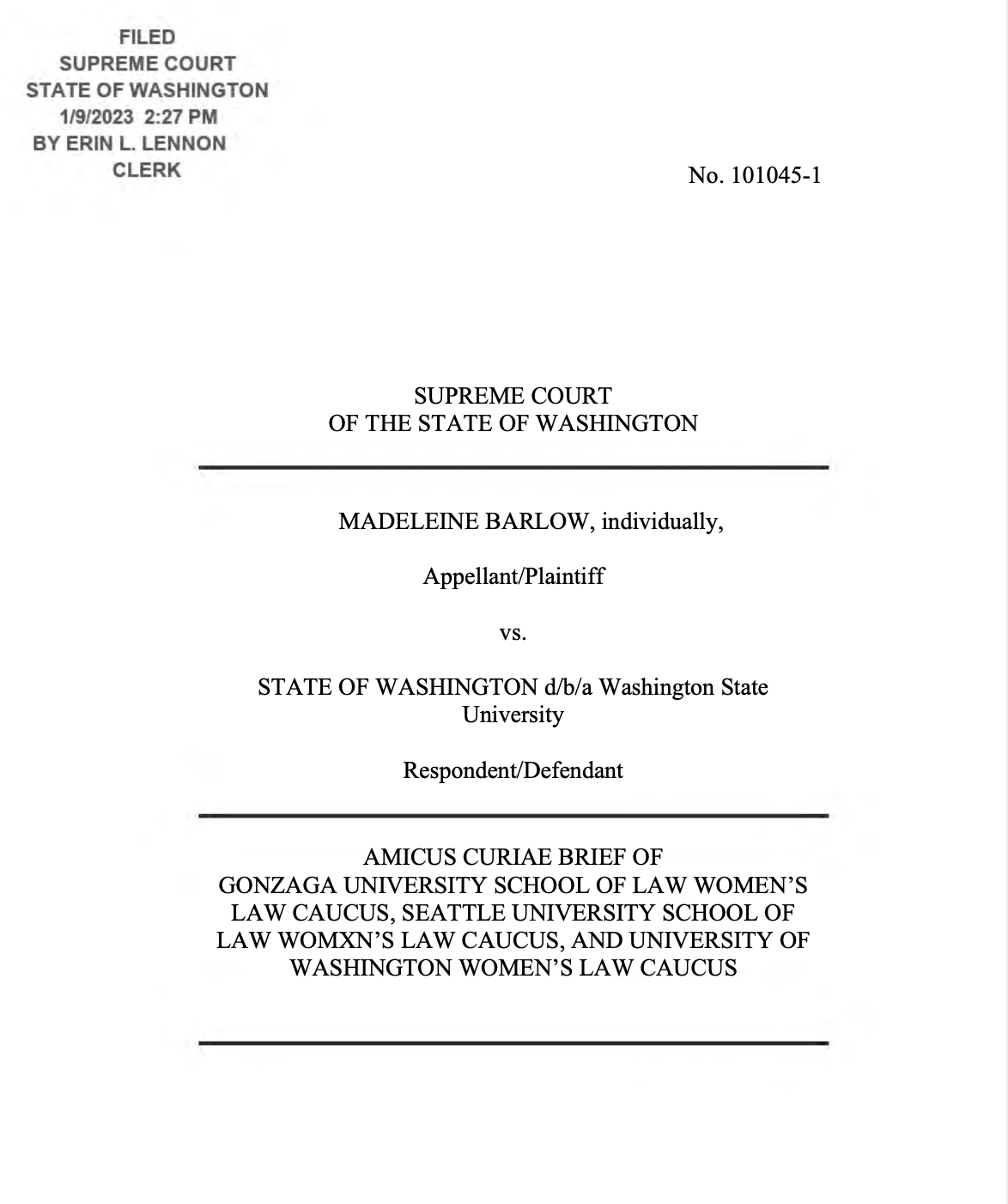
Summary of Argument
The Gonzaga University School of Law Women's Law Caucus, the Seattle University School of Law Womxn's Law Caucus, and the University of Washington Women's Law Caucus (collectively "the WLC") urge this court to rule that Washington law recognizes a special relationship between universities and their students, which compels them to protect them beyond the physical confines of a campus. The WLC make four essential points for the court's consideration.
The court should recognize that achieving adulthood is a several year process and not a singular event and apply this analysis to civil cases;
The risk of sexual assault is highest during the fall term at universities;
Washington law, and the community at large, recognize that a university's duties do not end at the campus border;
Washington State University's ("WSU") own code of conduct mandate certain conduct with sanctions for not complying and its website describes the WSU community as a "family."
A ruling in this case would not only benefit the citizens of Washington state but also the state by clearly stating what its duties are.